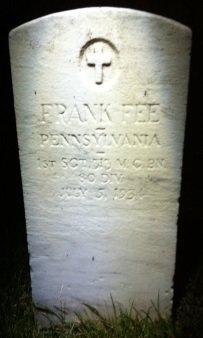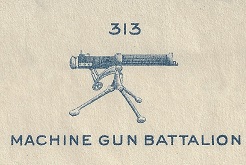First Sergeant Frank Fee
Fee served in the Army for six years before the First World War was declared, and when it appeared the United States was about to enter the war, Fee reenlisted and demonstrated selfless courage on the battlefield to later be recognized with the Silver Star Citation for distinguishing himself with "gallantry in action."
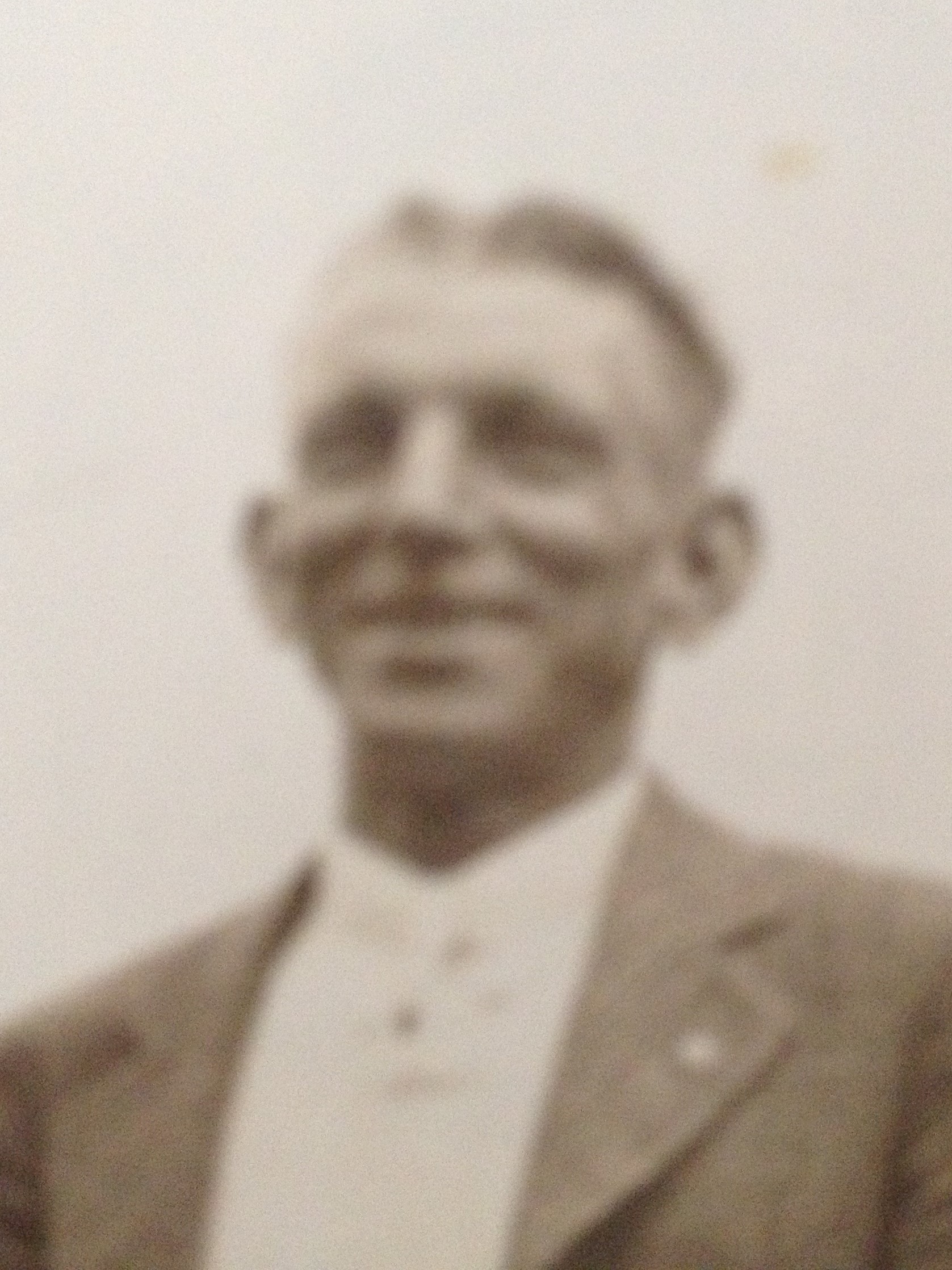 Frank Ferdinand Fee was born on August 13, 1884, in Philadelphia, Pennsylvania to parents Thomas and Rachel (Nichols) Fee. He was the fourth of six children. At the age of 21, he was working as a telephone inspector when he decided to enlist in the Army in June 1906. Fee was recruited by Major William H. Allaire, an Army officer who would later become the Brigadier General and Provost-Marshal General of the American Expeditionary Forces during World War I, and the Commanding General of the District of Paris.
Frank Ferdinand Fee was born on August 13, 1884, in Philadelphia, Pennsylvania to parents Thomas and Rachel (Nichols) Fee. He was the fourth of six children. At the age of 21, he was working as a telephone inspector when he decided to enlist in the Army in June 1906. Fee was recruited by Major William H. Allaire, an Army officer who would later become the Brigadier General and Provost-Marshal General of the American Expeditionary Forces during World War I, and the Commanding General of the District of Paris.
In 1906, Fee was placed into service with the 12th Cavalry Regiment, Troop C, where his first assignment took his regiment to the Philippine Islands. The Philippine Insurrection, the conflict between the First Philippine Republic and the United States officially ended in 1902. However, the United States Army occupied the Islands and continued to battle smaller armed forces for several years. It is not certain how much combat Fee faced in the Philippine Islands, if any, during the occupation by the United States.
While Fee was overseas his mother passed away in 1908. After fulfilling his 3 years of service, Fee was discharged from service at Camp Wallace, Philippine Islands on June 13, 1909. However, he reenlisted eleven days later for another 3 years of service under the command of Captain Buck. In 1910, Fee was listed on the U.S. Census living at Fort William McKinley, Philippines, with the rank of Sergeant. The 12th Cavalry Regiment returned to the United States in February 1911, and on June 23, 1912, Sergeant Fee was discharged at Fort Robinson, Nebraska at the end of his second 3-year enlistment. He was 27 years old at the time.
After his discharge from the Army he joined the Philadelphia Police as a mounted patrolman. His son James recalled the story of his father being a "trick rider" as evidenced by the pictures of him standing on the shoulders of men on top of a pyramid of other trick riders galloping around on horses. This talent for riding even led to Fee running away with the circus that came into town. However, Fee was apprehended by the police and brought back to Philadelphia to serve out the balance of his enlistment with the mounted police.
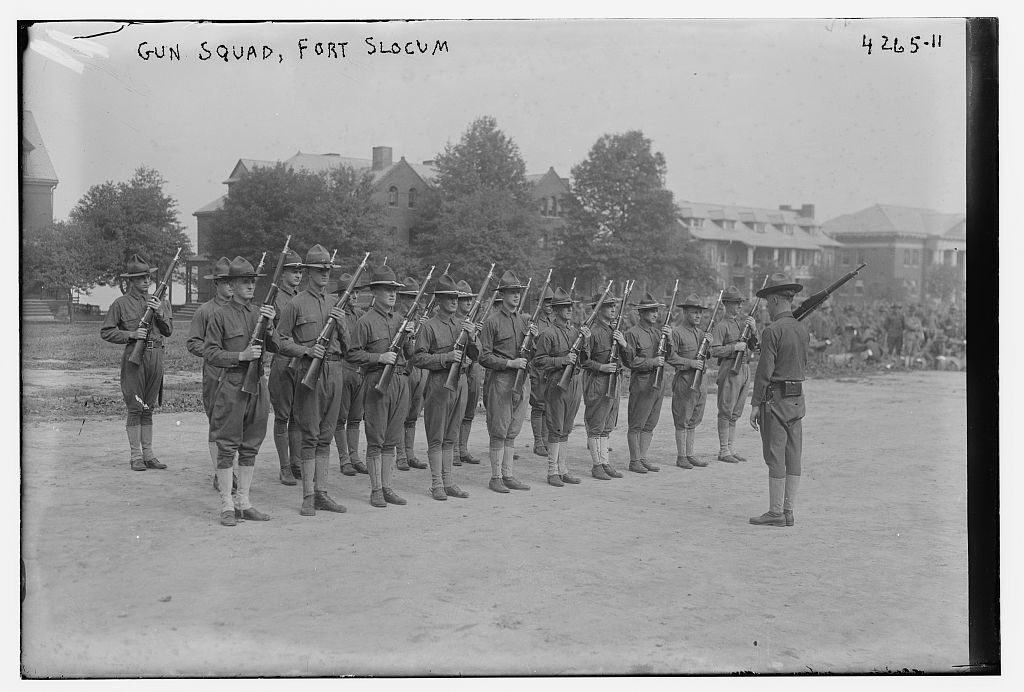 On July 14, 1916, about nine months before the United States entered the Great War, Fee had already anticipated the need for service and reenlisted in the National Army at Fort Solcum, New York. He was assigned to the 16th Cavalry Regiment, a new regiment established by the Army. He trained on machine guns until September 1917 and was then attached to the 313th Machine Gun Battalion at Camp Lee, Virginia.
On July 14, 1916, about nine months before the United States entered the Great War, Fee had already anticipated the need for service and reenlisted in the National Army at Fort Solcum, New York. He was assigned to the 16th Cavalry Regiment, a new regiment established by the Army. He trained on machine guns until September 1917 and was then attached to the 313th Machine Gun Battalion at Camp Lee, Virginia.
Before Frank Fee left for overseas service, his younger brother James Fee, a Cook with the US Army 19th Engineer Regiment, drown while deployed to France. James Fee was buried in the Oise-Aisne American Cemetery in Seringes-et-Nesles. It is not known when Frank Fee learned of his brother's death.
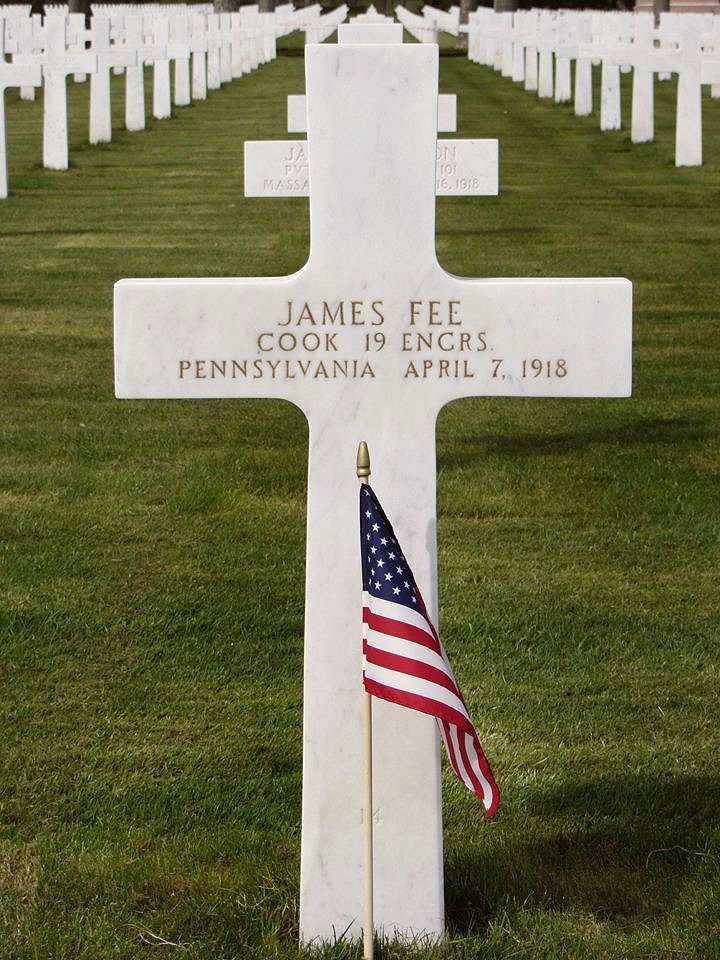
It is interesting to note the history of rank for Frank Fee during his third enlistment:
March 31, 1917 Corporal
July 15, 1917 Sergeant
October 20, 1917 First Sergeant (date of promotion unknown)
February 12, 1918 Private
April 23, 1918 Sergeant
April 25, 1918 First Sergeant
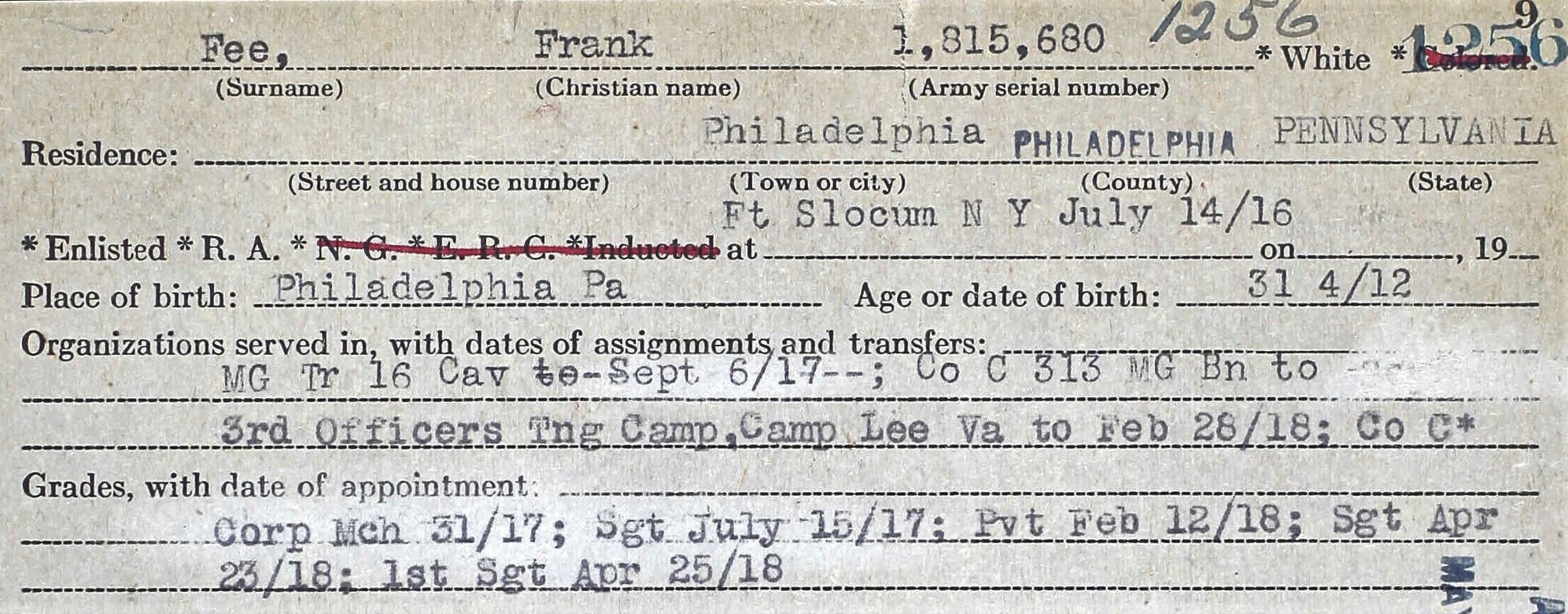
While unable to find a document to explain what caused Fee to be busted down to the rank of Private in February 1918, it can be noted that he quickly regained his rank as First Sergeant before the men boarded their ship for France. Research shows various documents and letters written home by officers that the ability to "bust" or demote an enlisted man was within their military order of discipline. It's not hard to imagine, during that time period when the US Army was churning out fresh new Army officers, that a "green officer" with a little bit of ego could have crossed paths with 6 year Army veteran First Sergeant Fee. It's even possible to assume that ego, bolshiness, and commonsense may have clashed one day, and Fee was on the short end of that stick.
There was one disciplinary incident I found in the stack of "charge sheets" for the men in the 313th Machine Gun Battalion that mentions Frank Fee. It appears that two Lieutenants from the 318th Infantry brought a charge against Fee for "having in his possession a pint bottle of whiskey." The incident occurred on October 18, 1917. Fee's Commanding Officer was Captain John Kean, and Captain William G. Thomas of the 313th Machine Gun Battalion found Fee "Not Guilty" during his summary court trial.
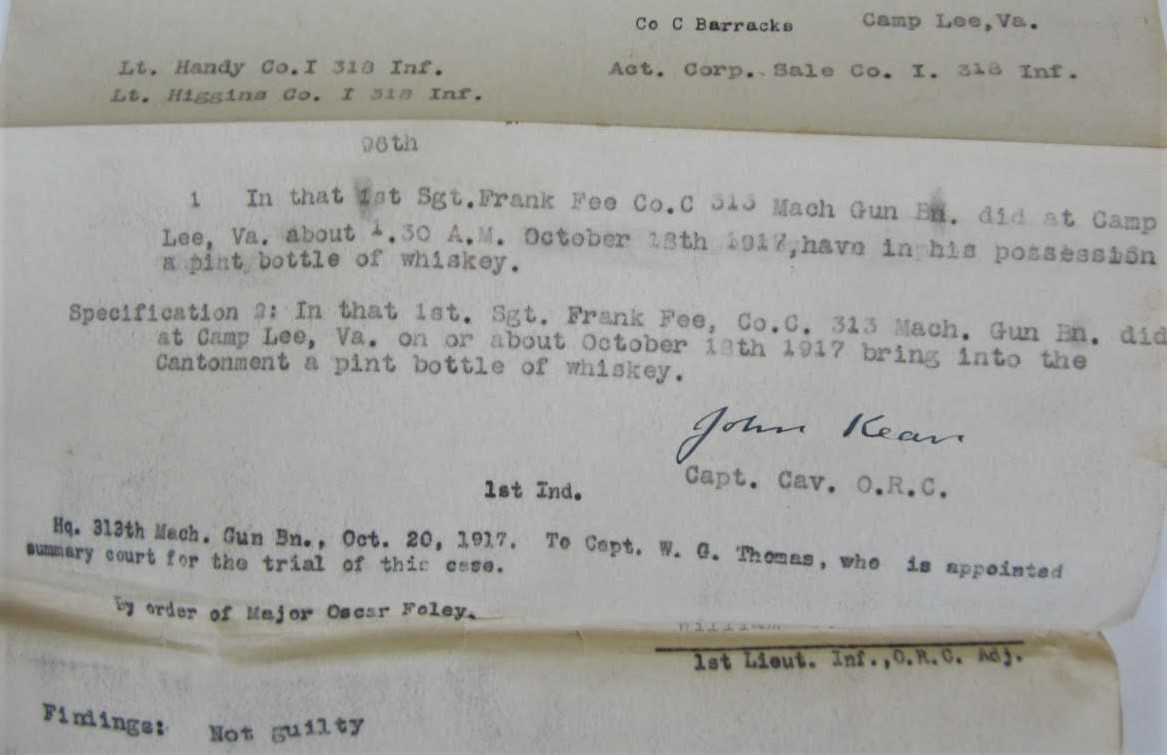
Of interest on this document is the name of one of the officers who brought the charge. Lieutenant Higgins, 318th Infantry, Company I, was one of the two officers listed on the sheet. Robert A. Higgins was mentioned in my book Good War, Great Men, for an incident that occurred on the battlefield in Nantillois when Higgins apparently hurled a grenade at a French tank commander whom he mistook as a German soldier charging from the frontline. The tank commander survived the incident without injury, but the story of Higgins was repeated by several officers who wrote letters home to their family. After the war, Higgins played college football at Penn State University where he became an All-American football player. He was inducted into the College Football Hall of Fame as a coach.
First Sergeant Frank Fee boarded the USS Mercury as a member of the 313th Machine Gun Battalion on May 24, 1918. His next of kin listed on the transport document was his older sister Fannie Montague.

It was on the same battlefield that Lt. Higgins faced the Germans in the Bois de Ogons, north of Nantillois, that First Sergeant Frank Fee distinguished himself in battle. His commanding officer, Captain Minard Hamilton, wrote a memo to the Commanding General of the 80th Division stating these words, "It is recommended that the Distinguished Service Medal be awarded to Frank Fee First Sergeant Company C, 313th Machine Gun Battalion. Sergeant Fee on duty as First Sergeant of his company, was on the morning of October 4 severely gassed. Under terrific artillery and machine gun fire he refused to be evacuated and remained on duty with his company, rendering invaluable service to his company commander until October 7th. He was ordered to the rear. From the effects of the gas and his subsequent exertions, this soldier became permanently disabled by the loss of one of his lungs. [He] has also lost the hearing in his right ear. Both punctured. Now in Base Hospital, Camp Devens MA."
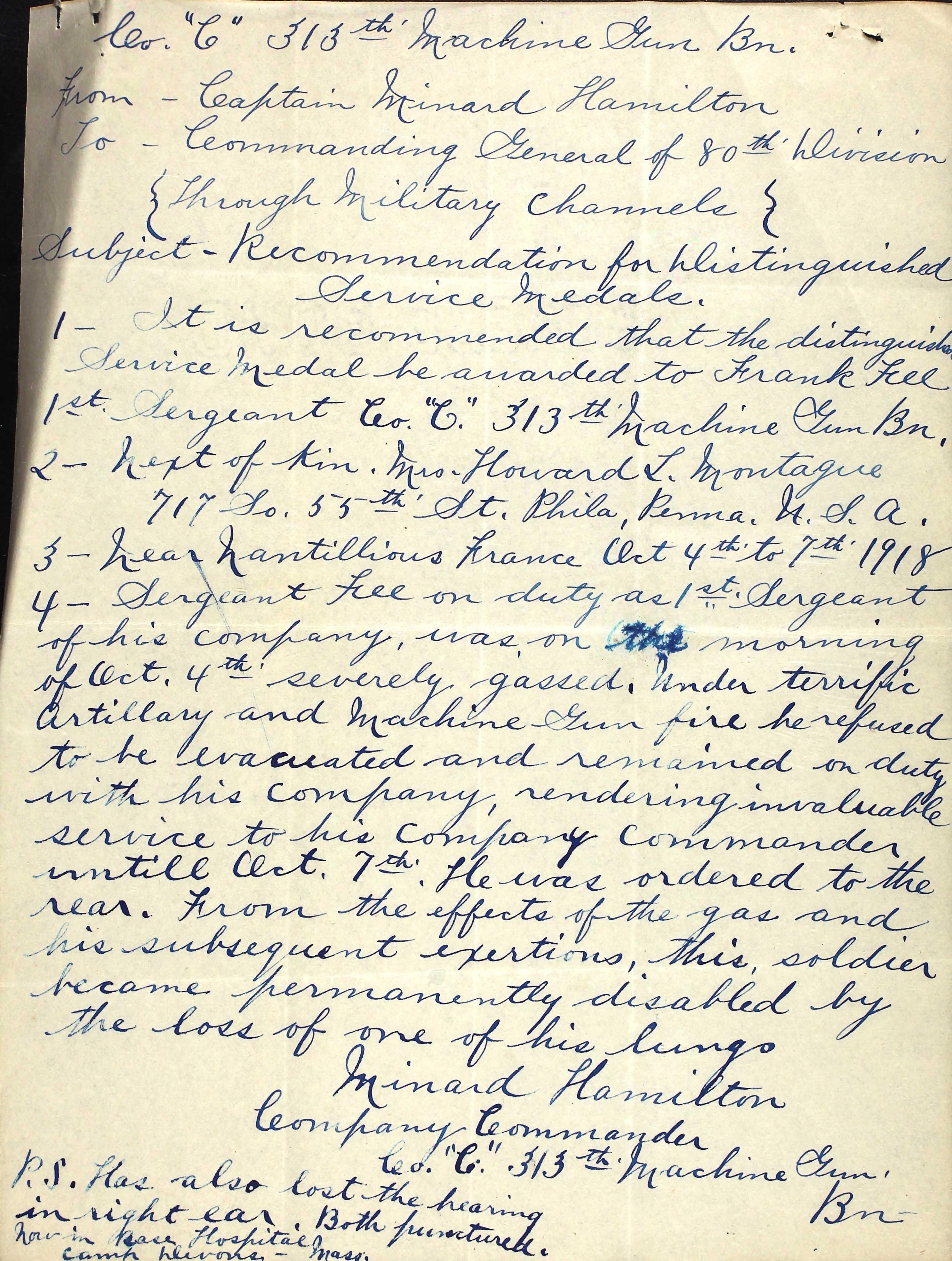
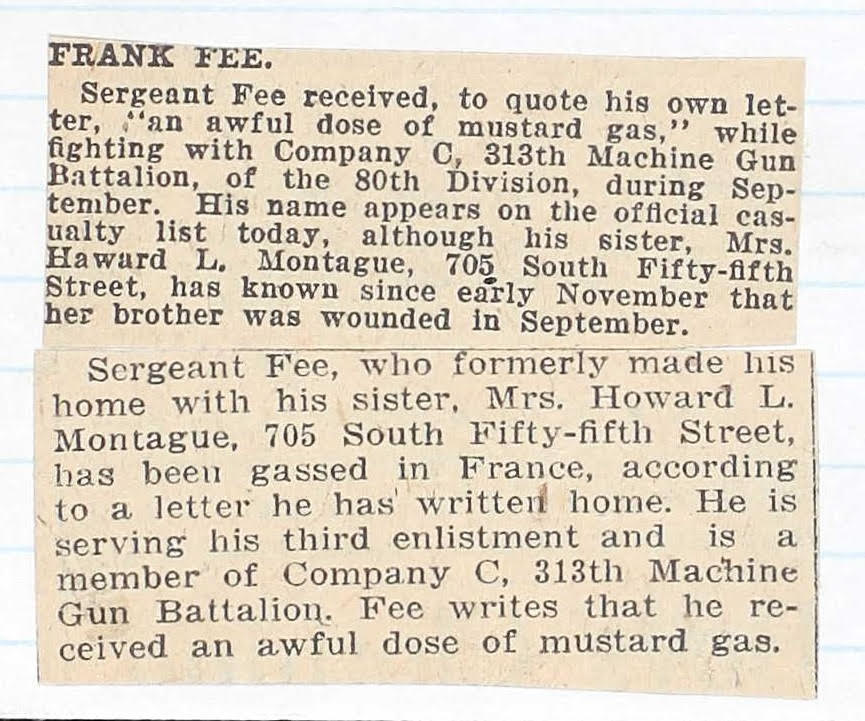
On March 1, 1920, General Headquarters, American Expeditionary Forces awarded First Sergeant Frank Fee with the Silver Star Citation, the Nation’s third highest decoration for heroism, ranked only behind the Distinguished Service Cross and the Medal of Honor. It authorized Fee to wear a Citation Star, a small 3/16” diameter Silver Star on the ribbon of his Victory medal along with the campaign bars specifying his service. This Citation Star was later replaced with the Silver Star Medal by the Secretary of War on July 19, 1932.
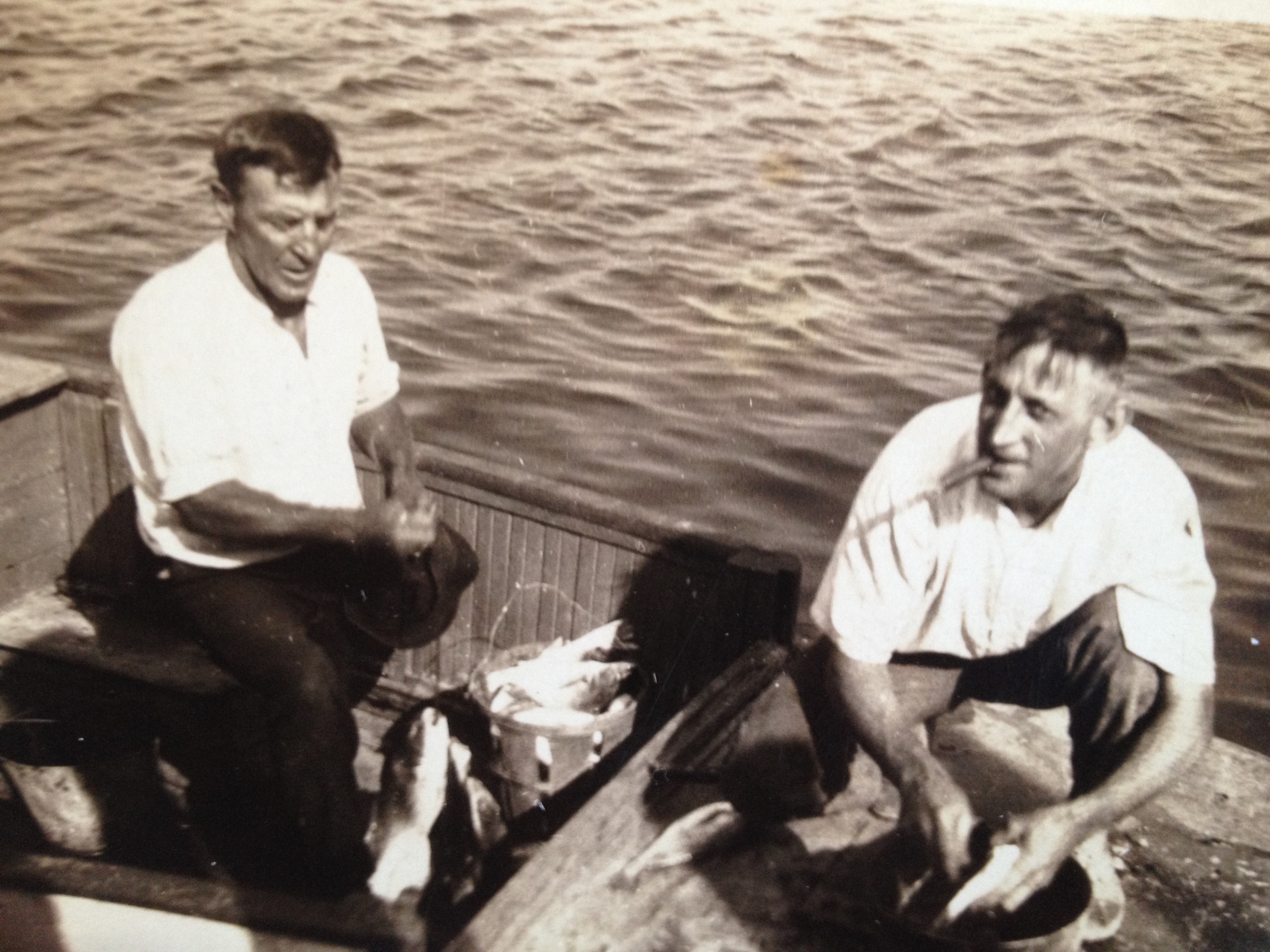
Frank Fee was discharged from Walter Reed Hospital on April 12, 1920. On September 10, 1920, he married Jane Schweizer, a 33-year-old manicurist who was working at a hotel in Baltimore, Maryland. The couple was married in Annapolis, Maryland. In 1927, the couple had their only child and named him James after his uncle who had died during the war. By 1930, Frank was working as a "mater" on a Sun Oil tanker sailing between Delaware, California and Texas. Unfortunately, on May 24, 1932, Jane Fee died when her son was only 5 years old.
Because Fee was working aboard these tanker ships, his son James had to move in with other family while his father was away. James recalled July 4, 1934, when he and his father spent the day in Washington DC having a picnic, swimming, and watching the fireworks at the Washington monument. They returned home to their place in Tacoma Park, Maryland. However, the next day, July 5, 1934, Frank Fee passed away. Fee was buried in Arlington National Cemetery on July 7, 1934.
His son James had the honor of participating as the head of a school boy patrol and marched in a parade down Pennsylvania Ave in 1939 when King George VI and Queen Elizabeth visited FDR. James also served in the Army and retired as a Major after 28 years. Following his military service, he retired from his civilian career as Vice President of US operations for a German industrial electronics company.
First Sergeant Frank Fee was without question, one of the Great Men that made up the ranks of the 313th Machine Gun Battalion.
